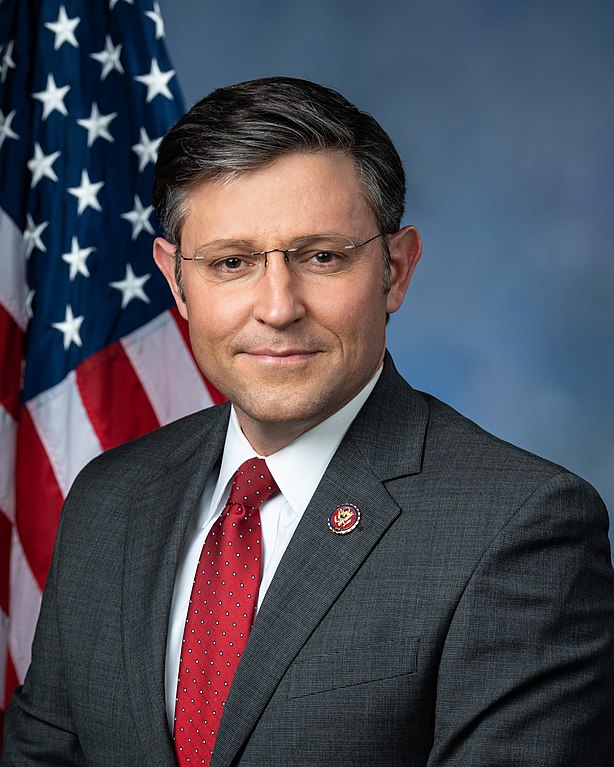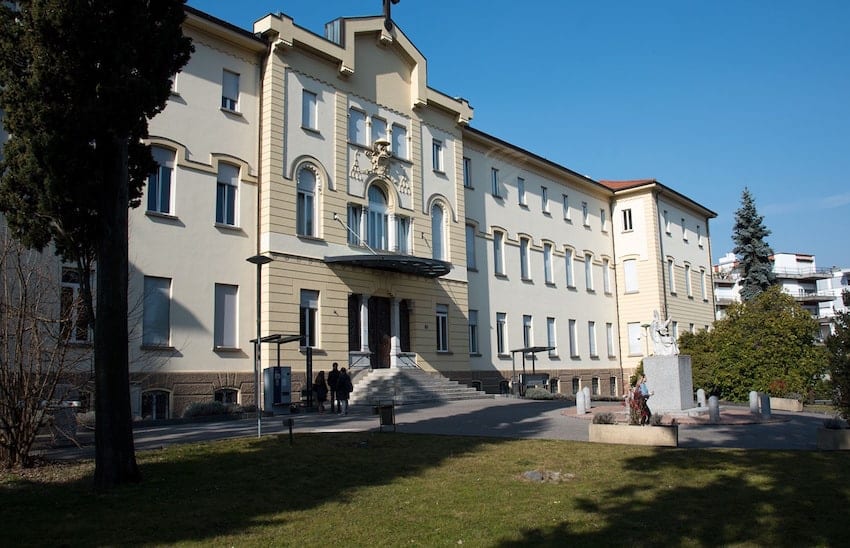by A. Altieri D’Angelo
Photo: Mike Johnson, official portrait
The above is Mike Johnson’s, Speaker of the U.S. House of Representatives (the Speaker), response to President Andres Manuel López Obrador’s (President of Mexico) suggestions on how to solve the U.S. Border Crisis (the Crisis).
The Speaker rejected the advice and demanded Mexico follow Trump’s previous instructions to hold immigrants in Mexico. Obrador had recommended the U.S. eliminate sanctions on Venezuela, end the embargo on Cuba, grant citizenship to Immigrants (Immigrants) from Mexico living in the U.S., and support struggling countries in South America and the Caribbean (Latam) by providing $20 billion a year in aid.
Johnson has been pushing President Biden to adopt Trump’s policy of threatening to impose damaging tariffs on Mexico to keep Immigrants in Mexico. Obrador has indicated he will not allow the U.S. to bully Mexico in such a way again. (President Biden has adopted a diplomatic approach and gained more Mexican assistance without damaging the U.S./Mexico relationship).
Many people support Mike Johnson’s approach, which is incredibly disrespectful to Mexico and its President and dangerous for the U.S. It is the wrong way to manage the Crisis and could easily lead to a strategic re-alignment between the U.S. and Latam.
It is also not in the best interest of the U.S. to cut off the flow of immigrants into the U.S. The U.S. already suffers from a labor shortage. As of January 2024, there were 8.9 million job openings in the U.S. Given the projected low U.S. birth rates, labor shortages are expected to continue. However, immigrants have higher birth rates than the U.S. native-born population, which will help offset the decline.
To make matters worse, in 2024, people over 65 may outnumber children under 15. The implications for the U.S. are labor shortages, lower economic growth, higher elder & retirement costs, higher taxes, and a weaker geopolitical presence. There is no question we need immigrants to come to America in large numbers.
Another strategic reason to reject the Speaker’s hardline approach to Mexico and Latam is China. China has become the second-largest market for Latam exports. It has also made significant investments in infrastructure on the continent. Its political influence is growing. Americans’ arrogant attitudes toward Latam could easily backfire and enable China to expand its influence. President Obrador said in his response to Johnson: “Mexico has a very good relationship” with the United States, but he stressed that “we are not dependent on it”.
The solution is to avoid extorting Mexico into holding back all Immigrants. The Crisis requires a three-phased approach: build a political consensus that the U.S. will need a large inflow of immigrants for several decades to remain secure and prosperous, enhance border security, and create a Latam supply chain.
The first phase is the toughest to accomplish. People do not want to hear that immigrants have higher birth rates or that the U.S. needs them. Everyone must realize that without immigrants, whole segments of the economy, from leisure and travel to elder care and construction, will lack the people to work. And despite domestic resistance, immigrants will keep coming to the U.S. If, however, there is an acceptance of immigrants, then the country can build a system for not only processing people but also educating them on what it means to be an American; they would learn English and be given work training. A new system would allow for permanent and temporary residence.
Enhancing security calls for the U.S. to rebuild its immigration system to process millions of Immigrants quickly (in a year or less). The key is funding: the U.S. must add more border patrol personnel, administrative judges to hear asylum cases, facilities to house people waiting for their hearings, and implement efficient methods for educating and moving approved applicants into the U.S. workforce or deporting people to another country.
Expanding the U.S./Latam supply chain will take time, but it will provide substantial economic and security benefits. The U.S. and American businesses should provide increased incentives and investments in Latam. Such investments would reduce the need for immigrants to seek refuge in the U.S. An improved supply chain covering all of Latam will enable the local populations to enjoy a better life in their home country. This approach accomplishes two things: the U.S. would accelerate decoupling from the Chinese-dominated supply chain and reduce uncontrolled immigration into the U.S.
The U.S. started as a nation of immigrants. It will continue to be a nation of immigrants. We cannot put our heads in the sand any longer. The U.S. must care for and nurture such people if it wishes to remain the leader of the free world.



















